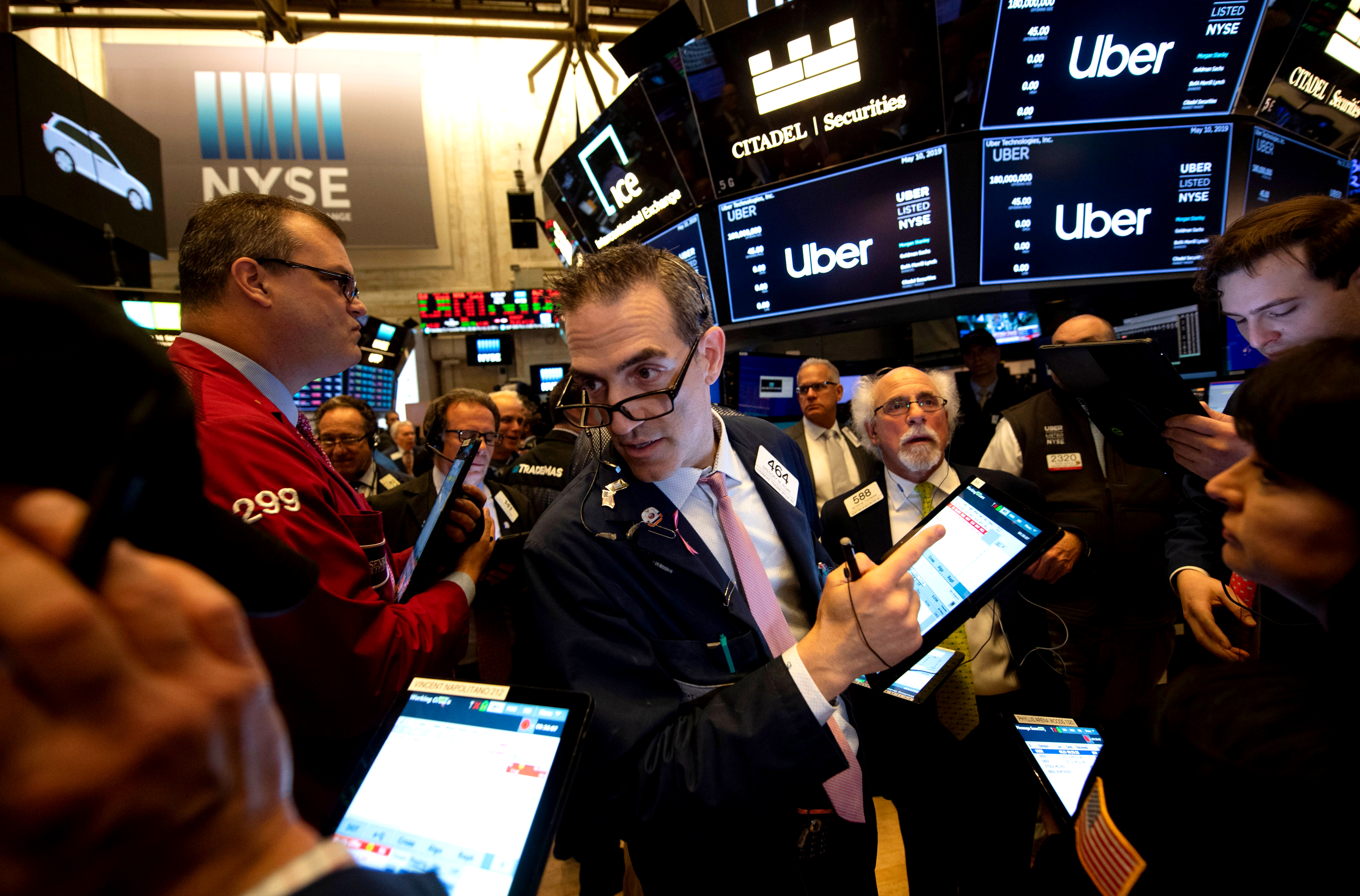A sobering lesson for Silicon Valley
The smartest insight and analysis on Uber's IPO, rounded up from around the web

A free daily email with the biggest news stories of the day – and the best features from TheWeek.com
You are now subscribed
Your newsletter sign-up was successful
The smartest insight and analysis, from all perspectives, rounded up from around the web:
It didn't take long for Uber's much-anticipated public offering to skid off track, said Corrie Driebusch and Maureen Farrell at The Wall Street Journal. The mood around Uber soured shortly "after a celebratory bell-ringing ceremony at the New York Stock Exchange" last Friday, as the ride-hailing giant raised $8.1 billion to become the largest IPO since Alibaba, in 2014. By market close, "the total money lost by investors" — $655 million — "was the most since at least 1975" for a company in its debut. Shares in Uber fell 7.6 percent below Uber's already conservative $45 listing price, then fell another 11 percent the next day. Across Wall Street, investors played the "blame game," arguing over who was responsible for the disastrous offering, said Eric Newcomer at Bloomberg. Uber was hit with "a lot of bad luck, including the abrupt flare-up last week in U.S.-China trade negotiations that drove markets down around the globe, as well as the recent dismal performance of Uber's main rival, Lyft Inc." But questions are flying about how Uber's bankers had miscalculated last year, when they widely suggested a $120 billion valuation for Uber that they could never deliver.
"Uber is hardly the first company to stumble in its first days, weeks, or months of trading," said Stephen Grocer at The New York Times. In 2012, Facebook shares opened for trading 11 percent above their IPO price, but the stock fell 13 percent a week later and 31 percent a year later. Now, "its shares currently trade at about five times" the price of its IPO amid worries that the company has grown too big. Of course, Uber's own executives love the Facebook comparison, said Alex Wilhelm at Crunchbase — just don't take it too far. The history of companies like Alphabet, Google's parent, and Facebook don't point to a "historical precedent for the Uber turnaround." There's one difference between Facebook and Uber that's really easy to see: In the 12 months before its IPO, Facebook had $1.75 billion in profits; Uber had $3 billion in losses.
The Week
Escape your echo chamber. Get the facts behind the news, plus analysis from multiple perspectives.

Sign up for The Week's Free Newsletters
From our morning news briefing to a weekly Good News Newsletter, get the best of The Week delivered directly to your inbox.
From our morning news briefing to a weekly Good News Newsletter, get the best of The Week delivered directly to your inbox.
Uber's IPO could mark a "problematic moment in financial history," said Richard Waters and Shannon Bond at the Financial Times. This offering could "define the era of the ‘unicorns' — the large number of tech startups valued at $1 billion or more that have been pumped up by money flooding into the private financing markets." For investors in other unicorns, Uber's inauspicious debut is sobering. For Silicon Valley, that "may signal a welcome turning point," said Matt Rosoff at CNBC. Uber's disastrous debut is the capstone to "an era characterized by big investments in relatively small ideas and an almost stubborn unwillingness" to wake up to social realities. Startups such as Uber rode the "rise of mobile computing" and "solved problems for wealthy young people inhabiting major cities." Worse, few of them were profitable, and they exploited the gig workers that relied on them. Fortunately, "the tech industry seems to be going through a phase of serious introspection," and investors' pushback on Uber offers more "reason to hope that Silicon Valley can return to tackling big problems and building sustainable businesses."
This article was first published in the latest issue of The Week magazine. If you want to read more like it, you can try 8 issues for only $1 here.
A free daily email with the biggest news stories of the day – and the best features from TheWeek.com